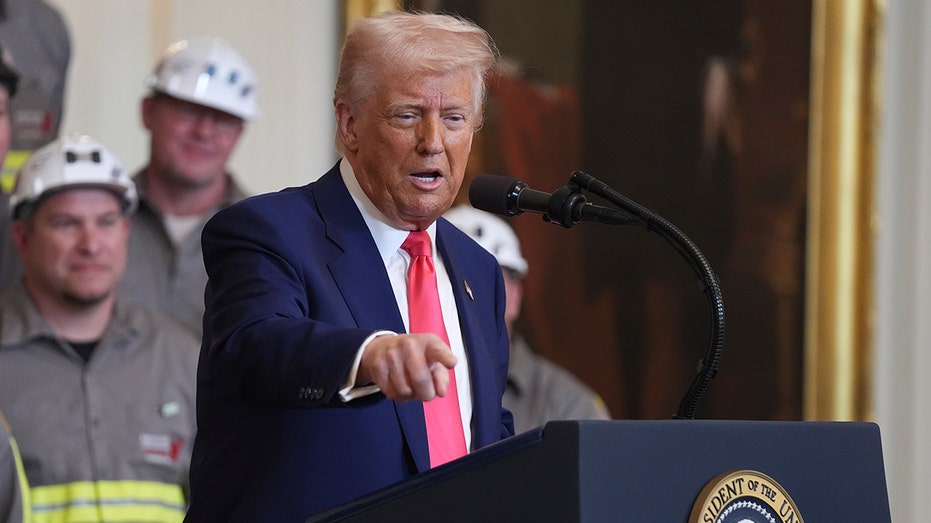Donald Trump, the 45th President of the United States, is set to embark on a busy 13th week in office as he intensifies efforts to negotiate tariffs and strengthens international relations. A significant aspect of this week’s schedule includes a high-profile visit from President Nayib Bukele of El Salvador, marking an important moment for US-El Salvador relations amidst ongoing discussions about trade and immigration.
This week’s agenda is expected to be dominated by crucial negotiations concerning tariffs, specifically focusing on key trading partners including China, Canada, and Mexico. The administration’s pursuit of fair trade practices has been a central theme since Trump took office, and this week reflects an escalation in efforts to address trade imbalances that Trump claims have disadvantaged American workers.
With tariffs having a substantial impact on various sectors of the economy, Trump is anticipated to engage in strategic dialogues to refine tariff policies, especially in relation to large imports from countries that have historically engaged in practices deemed unfair by the Trump administration. The ongoing trade negotiations, particularly with China, are particularly noteworthy as Trump aims to reduce the trade deficit and push for reforms that benefit the American economy.
As the week unfolds, industry leaders and economic analysts will be observing closely how these negotiations unfold. The ripple effects of changes in tariff policies could significantly influence industries ranging from agriculture to steel manufacturing, which have been vocal about how they are affected by foreign competition.
One of the administration’s focal points has been the steel and aluminum tariffs that were initially implemented in the previous year. The implications of these tariffs have generated considerable debate, drawing support from some sectors while facing opposition from others. Discussions will likely also cover how these tariffs affect relations with allied nations and impact the economy on a broader scale.
In addition, the presence of El Salvador’s President Nayib Bukele on the agenda underscores a commitment to fostering stronger ties with Central America. Bukele’s visit is significant amid rising concerns concerning immigration and border security, issues that have taken center stage in US political discourse.
President Bukele, who has garnered attention for his innovative approaches and plans to tackle corruption within his own country, aims to elevate discussions regarding trade and security, which have direct implications for both nations. The trip also serves as a vital opportunity for bilateral engagement, as both leaders explore cooperative measures to address key challenges such as migration, security, and economic development.
Hoping to soothe relations that have at times been strained, both leaders are likely to discuss initiatives that would provide economic support to El Salvador. This support could potentially curb the flow of migrants attempting to reach the United States, as economic opportunities at home often signal a decrease in emigration. As part of this discussion, the continuation of aid, trade, and investment in development projects may emerge as key talking points.
Moreover, Bukele’s administration is anticipated to express concerns regarding US immigration policies that have affected Salvadorans living in the US. The administration’s stance on Temporary Protected Status (TPS) for Salvadorans, which provides legal residency to those who sought refuge from natural disasters and violence, may also feature prominently during these discussions. A revision of this policy could have a dramatic effect on thousands of Salvadorans who call the US home.
The negotiations regarding tariffs and the implications of immigration policy reflect broader themes in the Trump presidency: the prioritization of an America-first agenda and the complexities involved in foreign relations, especially with countries that share a historical connection with the United States.
This week’s engagements also highlight the importance of effective communication and negotiation in the realm of international politics. As Trump continues to elevate trade and immigration as priorities, the outcomes of these discussions will undoubtedly reverberate throughout domestic and international markets.
As the 13th week of Trump’s presidency progresses, the confluence of tariff negotiations and international diplomacy demonstrates the intricate balance leaders must maintain to protect national interests while fostering cooperative relationships abroad. How these negotiations pan out may set the tone for future international trade relations and America’s approach to immigration in a dynamic global landscape.
In summary, President Trump’s week is poised to be action-packed, filled with critical economic negotiations and a benchmarking visit from El Salvador’s progressive president. The administration’s focus on tariffs and economic agreements encapsulates its broader strategy to reinforce America’s position in global trade, while also tackling complex immigration challenges through collaborative efforts with neighboring countries.
Industry stakeholders, political analysts, and citizens alike are keenly observing these developments, as the outcomes are likely to influence both policy and public opinion in the months to come. With the stakes raised high, Trump’s strategy and the reception from international leaders could develop further insights into the direction of US foreign policy during his presidency.
































